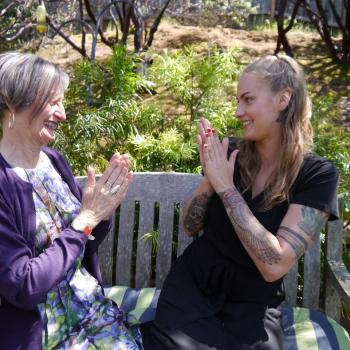When I describe this lack of governmental oversight and the corresponding lack of protections for homeschooled students, I'm often told that there is nothing to be done about it. Parents, the argument goes, have a First Amendment-protected religious-liberty right to homeschool without governmental intervention, provided that they have religious reasons for homeschooling. Thus, increasing homeschool oversight—at least as to those parents—is unconstitutional.
As a civil-rights lawyer who daily litigates religious-liberty cases, I'd like to explain why that argument is wrong.
Our religious-liberty rights are grounded in the First Amendment's Free Exercise Clause: "Congress shall make no law . . . prohibiting the free exercise [of religion]." Thanks to the 14th Amendment, the Clause applies equally to the federal and state governments.
Despite its broad phrasing, the Clause can't mean that the government can never forbid a religiously motivated action. We can all imagine how well individuals on trial for murder would fare were they to defend themselves by saying that their religion told them to do it.
What, then, does the Free Exercise Clause prohibit? For that, we turn to the U.S. Supreme Court's decision in Smith v. Employment Division. In Smith, Native American government workers were fired for religiously motivated criminal conduct: ingesting peyote as part of a religious ritual. The workers challenged the criminalization of their religious practice, arguing that the drug statute at issue violated their religious-liberty rights.
Justice Antonin Scalia, writing for the Court, disagreed. He explained that drug laws were "neutral law[s] of general applicability"; that is, they were not written in order to single out or target a particular religious practice. As long as they are reasonable, a mild test indeed, such laws survive constitutional scrutiny, even when they may impact one religion disproportionately.
Increased homeschool regulation easily passes this test. Homeschool oversight, properly done, does not target any particular religion. Rather, it enforces overarching requirements that apply equally to all homeschooling parents, religious and nonreligious alike, for the legitimate governmental goal of ensuring children's wellbeing and adequate education.
Smith can end the matter, but I'd like to further discuss one wrinkle: the 1972 U.S. Supreme Court case Wisconsin v. Yoder. In Yoder, Amish parents challenged Wisconsin's compulsory-education law, which required school attendance until age sixteen. As Amish religious practice was to end formal education after 8th grade, the parents argued that Wisconsin had violated their religious-exercise rights.
The Court ruled for the parents. Noting that the government had a limited interest in extending schooling a mere two years for children who would likely become self-reliant members of the Amish community as it was, and believing, based upon expert testimony, that those two additional school years threatened the Amish way of life, the Court determined that the government lacked an interest compelling enough to justify overriding the Amish religious practice.
Yoder is often cited by advocates who argue that homeschool regulation is a religious-liberty violation. And, at first blush, it's understandable why some have interpreted it as forestalling at least some homeschool regulation. But Yoder actually has limited—if any—influence today. In fact, no federal court has ever used Yoder to strike down a homeschool regulation, even when homeschool regulations were more extensive than they are now.
Why? The Yoder Court applied a religious-exercise framework that was later shattered by Smith; whether Yoder survived Smith at all is therefore debatable. Additionally, even if Yoder were good law, its analysis relied so heavily on unique attributes of Amish society—especially the ability to be self-sufficient without formal high-school education—that courts today would be hard-pressed to find Yoder comparable to religious-liberty lawsuits against homeschool regulations. Homeschooled children, after all, are of necessity being prepared for our mainstream economy, making regulations aimed at ensuring their economic self-sufficiency in the modern world perfectly compatible with Yoder.
Over the past several years, I have spoken with more homeschool alumni than I can count. While many had outstanding educational experiences, there were also many who did not. One did not learn the multiplication tables until 12th grade. Some were never taught algebra. Others spent so much time doing chores, working in family businesses, or caring for younger siblings, that they never could complete their schoolwork, no matter how hard they tried. And still others simply were never given the textbooks, resources, and instruction that they needed to succeed. Too often religious liberty has been used to justify doing nothing to correct the lack of governmental oversight that makes educational neglect like this possible. But, while there are certainly barriers to change—the lack of widespread awareness about these negative homeschool experiences being paramount—the First Amendment is not one of them. It's time to stop portraying it as though it is.
Disclaimer: All opinions are my own and do not reflect my employer's.




